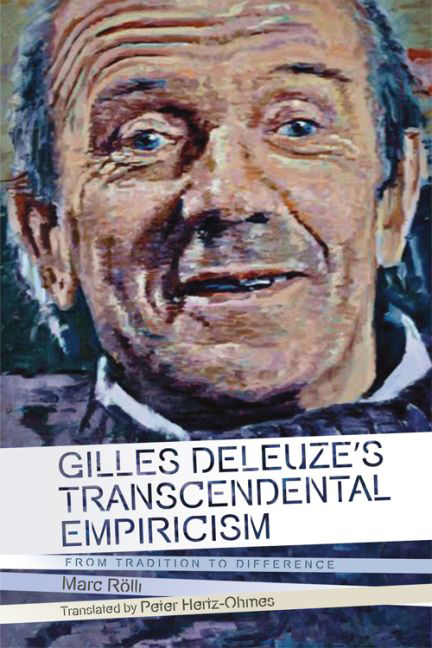Book contents
Conclusion: Where Do We Go from Here? Lines of Flight
Published online by Cambridge University Press: 27 April 2017
Summary
A good empiricist must be a critical metaphysician.
(Feyerabend 1999: 102)Deleuze never hid the fact that Event plays a special role in his philosophy. Although the German concept, Ereignis, has been around since Heidegger's Beiträgen (1936–8) (see Kovacs 1992: 39ff.), Deleuze's use of événement is oriented more toward Nietzsche and his reflections on eternal return. One could say that Deleuze succeeds in combining two seemingly countervailing conceptions, Heidegger's event-transcendence and Nietzsche's event-immanence, into one immanent thought. In transcendental empiricism's concept of experience, Event links the rejection of representational thought with the affirmation of (Dionysian) becomings. Phenomenologically speaking, this has the consequence that the Event carries with it not only an abrupt forfeiture of normal customs and routines of life, but also a form of procedural continuity of a split in time or meanwhile (entre-temps, Zwischen-Zeit). This un-representable moment radiates through past and future, spreads itself nomadically over them and is meant to be played figurally, mimetically (see Deleuze and Guattari 1994: 158).
Many interpreters think they must choose between the idea of a nomadic allocation of Being, in tune with the third time synthesis, and the aesthetic idea of virtual counter-actualisation, in tune with the second time synthesis. Scattered intensity differences or compressed blocks of sensations? The apparent contradiction has even been explained as a change in Deleuze's thinking from a structuralist to a post-structuralist position, which overlooks the fact that the transcendental use of the faculty of memory is not only directed toward a memorandum that has to be remembered, yet cannot be remembered, but belongs already to the third synthesis. The virtual time-image of the past cannot be actualised in memory. It must be counter-actualised – in the sense of a past which was never present because it is begotten within forgetting (see Deleuze 1994: 140ff.).
Deleuze connects the transcendental exercise of all faculties with Nietzsche's carefully honed conception of immanence and becoming. This implies not only that counter-actualisation by the mime, whether as painter, dancer or whatever, relies on the nomadic production of difference among heterogeneous faculties, but also that the idea of a differential and univocal splintering of Being within becoming remains all too abstract unless we consider concurrently the concrete origin, dissolution or evolving dissemination of the actual (not to mention its relation to its virtual double).
- Type
- Chapter
- Information
- Gilles Deleuze's Transcendental EmpiricismFrom Tradition to Difference, pp. 281 - 286Publisher: Edinburgh University PressPrint publication year: 2016



